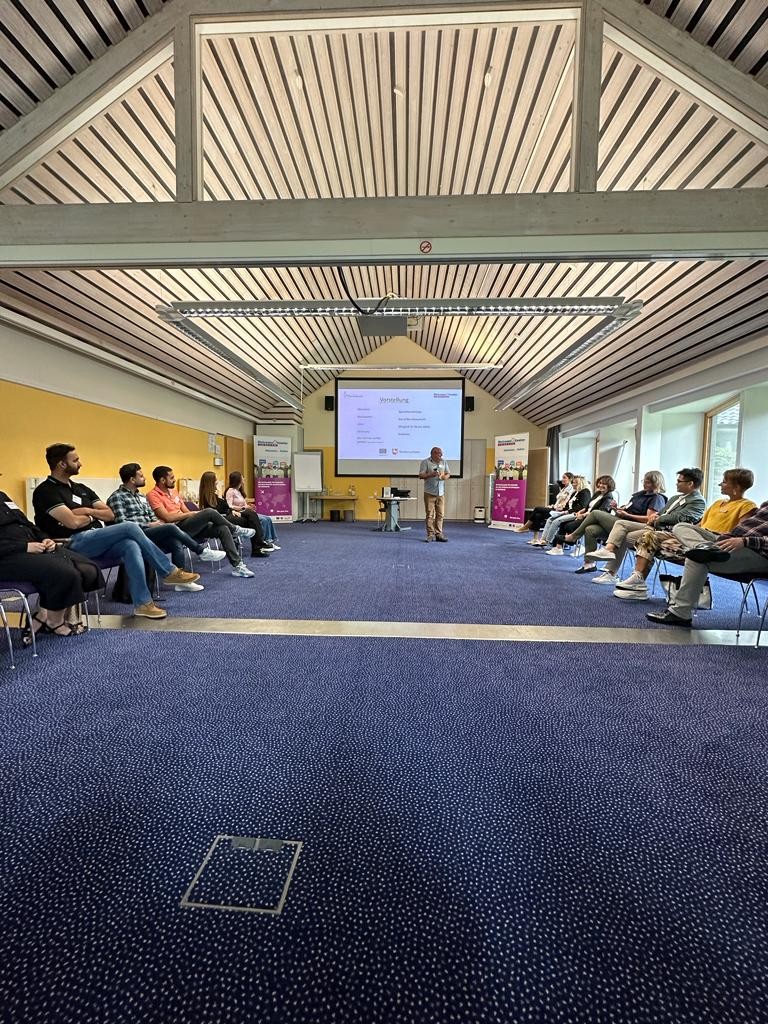-
Send Email
info@obfe.org -
Visit Office
Gartenfelder Straße 114b, 13599, Berlin, Germany


Send Email
info@obfe.orgVisit Office

22
Jul
The Soltau Conference on Multicultural Integration was held on 22.07.2023 at soltau. The purpose of the meeting was to foster dialogue and collaboration among various organisations and stakeholders in Heidekreis regarding language barriers, complained behaviour towards foreigners, and the exchange of ideas to enhance integration efforts. The meeting was divided into five distinct parts, each addressing specific aspects of the topic.
Part 1: Vorstellung from VHS Heidekreis, OBEF, and Welcome Centre’s Heidekreis
The meeting commenced with introductions from representatives of three key organisations:
Volkshochschule (VHS) Heidekreis, Open Bridges for Education (OBEF), and the Welcome Centre Heidekreis. Each organisation provided an overview of their mission, objectives, and ongoing initiatives related to multicultural integration in the region.
Part 2: Fishbowl Discussion on Language and Complained Behaviour Towards Foreigners
The second part of the meeting featured a fishbowl discussion, which allowed participants from
diverse backgrounds to engage in an open and honest exchange of views. The focus of this discussion was on language barriers faced by foreigners and the prevalence of complained behaviour towards them in Heidekreis. Attendees shared their experiences, challenges, and proposed solutions to address these issues effectively.
Part 3: Presentation from VHS Heidekreis, OBEF, and Welcome Center Heidekreis
Following the fishbowl discussion, the three organizations - VHS Heidekreis, OBEF, and the Welcome Center Heidekreis - delivered comprehensive presentations. They showcased their successful projects, initiatives, and strategies that have positively impacted the integration process. The presentations aimed to inspire collaboration and encourage other organisations to adopt effective practices.
Part 4: Table Play and Collaborative Activities
To encourage interactive participation, a table play was organised, wherein participants were
divided into smaller groups to address hypothetical scenarios related to multicultural integration.
This activity fostered creative thinking and problem-solving, allowing participants to propose
innovative approaches to tackle integration challenges.
Conclusion:
The Soltau Conference on Multicultural Integration concluded on a positive note, with participants from various organisations and backgrounds expressing their commitment to promoting a more inclusive and harmonious community. The meeting successfully provided a platform for fruitful discussions, valuable insights, and the establishment of potential partnerships to address language barriers and complained behaviour towards foreigners effectively.
Recommendations:
Based on the discussions and presentations during the meeting, the following recommendations are put forth:
1. Foster greater collaboration among organisations to pool resources and expertise in integration efforts.
2. Implement language learning programs tailored to the needs of different cultural groups to
enhance communication and understanding.
3. Create awareness campaigns to promote tolerance, respect, and appreciation for cultural
diversity.
4. Develop mentorship programs to support newcomers and facilitate their integration into the local community.
It is hoped that the outcomes of this meeting will contribute significantly to the enhancement of
multicultural integration in Heidekreis, leading to a more inclusive and cohesive society.